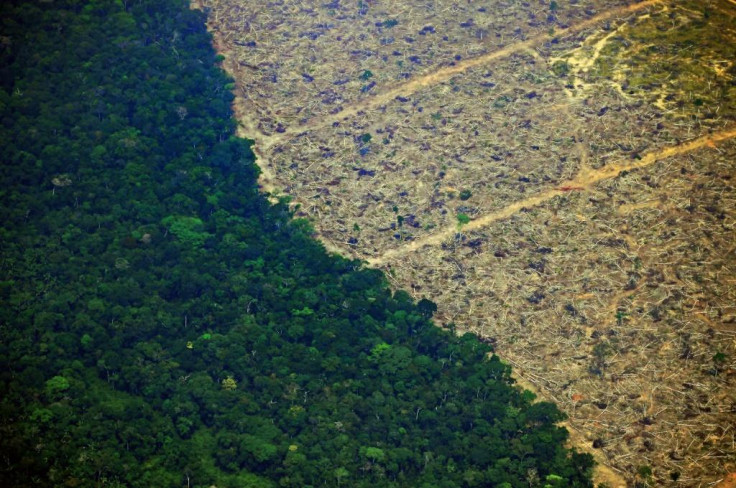Amazon Rainforest Faces Devastating Drought as Climate Crisis Worsens
Rivers that once flowed vigorously now bear the scars of receding water levels, leaving vast expanses of the rainforest parched and vulnerable.

The Amazon rainforest, often referred to as the "lungs of the Earth", is grappling with a devastating drought that threatens not only its diverse ecosystems but also the global climate balance.
This alarming phenomenon is indicative of the severe consequences of climate change, underscoring the urgent need for international cooperation to address the environmental challenges we face.
The Amazon rainforest, renowned for its unparalleled biodiversity and critical role in regulating the Earth's climate, is currently experiencing an unprecedented water scarcity.
Rivers and tributaries that once flowed vigorously now bear the scars of receding water levels, leaving vast expanses of the rainforest parched and vulnerable.
Local communities and wildlife that depend on these water sources are facing dire consequences, amplifying the urgency for swift and meaningful action.
The drought ranked as the most severe on record in numerous locations, attaining the highest level of "exceptional" on the scientific scale.
An analysis revealed that absent the emissions responsible for warming the planet through the combustion of oil, gas and coal, the drought would have been considerably less severe.
Furthermore, the study by the World Weather Attribution Organisation indicated that global heating augmented the likelihood of the drought occurring by 30 times.
Although the reemergence of the natural El Niño climate phenomenon is linked to drier conditions, its impact was deemed minimal by the scientists.
The climate crisis is intensifying extreme weather events worldwide, and the profound drought in the Amazon serves as a poignant and concerning illustration.
This is particularly alarming as the rainforest is believed to be teetering on the brink of a critical threshold, potentially transitioning into a drier state.
Such a shift could lead to a widespread loss of trees in the most significant terrestrial carbon reservoir globally, liberating substantial amounts of CO2 and further elevating global temperatures.
Deforestation, often driven by unsustainable agricultural practices, further exacerbates the situation by reducing the forest's capacity to retain water and regulate its climate.
The European Union experienced an eight per cent reduction in carbon dioxide emissions from fossil fuels in 2023 compared to 2022, marking the lowest level in six decades.
This decline in heat-trapping pollution stands as the most significant annual drop on record, second only to the notable reduction observed in 2020 when governments implemented measures such as closing factories and restricting flights to curb the spread of COVID-19, as per analysis conducted by the Centre for Research on Energy and Clean Air (Crea).
Isaac Levi, an analyst at Crea, said: "EU CO2 emissions have now returned to levels reminiscent of my parents' generation in the 1960s. However, during this period, the economy has tripled, demonstrating that climate change can be addressed without sacrificing economic growth."
In addition to environmental concerns, the devastating drought is taking a heavy toll on indigenous communities that rely on the rainforest for their livelihoods.
Fishing, agriculture and traditional practices are all under threat as water sources dwindle. Indigenous peoples, who have been the stewards of these lands for generations, find themselves at the frontline of the climate crisis, grappling with the consequences of a problem they bear minimal responsibility for.
Gareth Redmond-King, at the Energy and Climate Intelligence Unit in the UK, said: "The Amazon rainforest is critical to regulating our planet's climate, but this area of South America is also critical to the UK in an even more immediate sense."
He added: "About half of our food imports come from climate impact hotspots, including Peru, Colombia and Brazil, which are our top suppliers of bananas, avocados, melons and other fruit, as well as soya beans for feeding British livestock.
"So climate change's devastating effects on South America's farmers last year may well translate into gaps on our supermarket shelves and higher prices for our food."
© Copyright IBTimes 2025. All rights reserved.






















